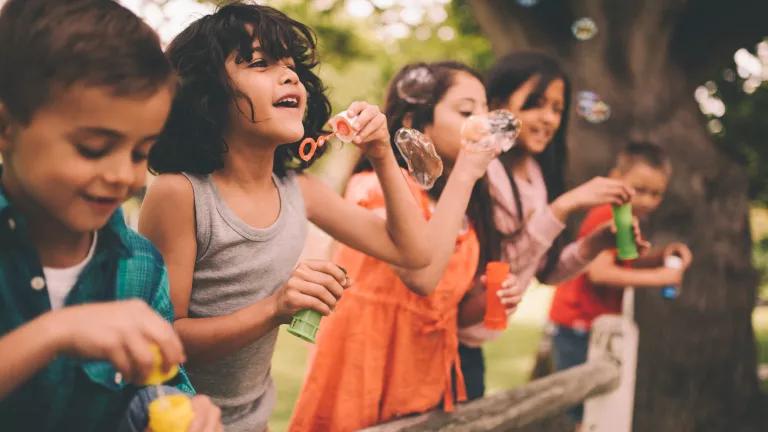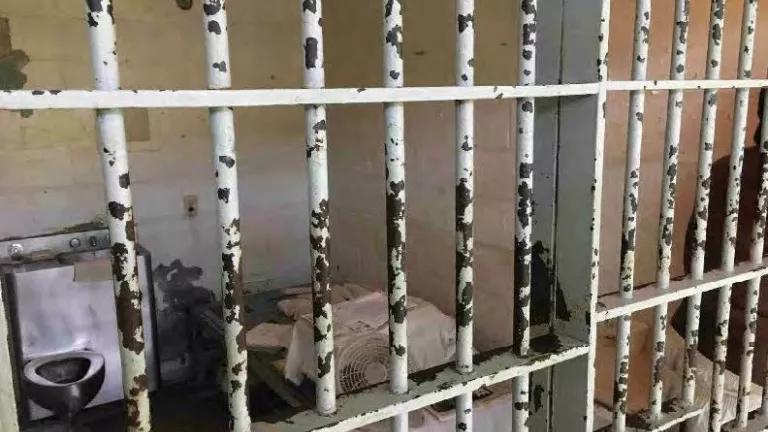
A new NRDC report finds that climate change disproportionately impacts Latinos in the United States—and they overwhelmingly want leaders to take swift action.
It’s difficult to think about Los Angeles in the 1970s and not envision smog blanketing the city. I remember it vividly. My father, who worked downtown, would often talk about the thick haze, the dirty air. And on the occasions I ventured into the city center as a child, I experienced the pollution smothering our home firsthand.
From the beginning, I had a keen awareness of Los Angeles’s severe pollution problem, and later on, after my family moved to Colombia for my father’s job, the issue became even clearer to me. From air pollution and dirty water to energy and water shortages, my childhood was shaped by environmental problems.
Later on, not long after I began working as an attorney at NRDC, in 1999, I noticed that the U.S. Latino community in particular was incredibly impacted by the many environmental issues plaguing the country. What’s more, I saw that despite not having a lot of information about these problems or support to deal with them, Latinos were committed to finding a solution. I saw the same type of awareness that I remember so clearly from my own childhood—and it has shaped my work at NRDC ever since.
Today, my colleagues and I are proud to publish a new, comprehensive report on U.S. Latinos and climate change, the most pressing environmental issue of our time. “Nuestro Futuro: Climate Change and U.S. Latinos” explores the growing number and influence of Latinos in the United States and highlights the elevated climate-related threats the community faces.
Perhaps most important, however, is that it demonstrates that Latinos care about the impacts of climate change—and they want action now. Latino engagement on the issue, the report finds, can help secure a safer climate and a cleaner energy future.
There are more than 56 million Latinos living in the United States today, up from more than 50 million in 2010. This rapidly changing segment of our population is expected to grow from nearly 18 percent of all U.S. inhabitants in 2015 to 29 percent by 2060. At the same time, Latinos are disproportionately vulnerable to climate-related threats because of where they live, their occupations, and the financial challenges they face.
More than 60 percent of U.S. Latinos live in California, Texas, Florida, and New York, where severe heat, air pollution, and flooding pose greater risks than they do in other states. And because a large number of Latinos work outdoors in crop and livestock production, construction, and landscaping, they are more susceptible to the impacts of extreme heat fueled by climate change. Meanwhile, millions of Latinos across the country don’t have access to health insurance and are ineligible for federal disaster assistance that would help them recover from an extreme weather event.
In the face of these challenges, addressing climate change presents a tremendous opportunity. Despite the great diversity of Latinos in the United States, they are overwhelmingly united by a desire for action on climate. In fact, 9 out of 10 Latinos polled in 2014 said they wanted the government to take action to protect future generations from the dangers of climate change. And 8 in 10 expressed support for President Obama’s efforts to reduce the carbon pollution that’s driving climate change.
Significantly, a majority U.S. Latinos don’t believe there is a trade-off between protecting the environment and fostering economic growth. They understand that clean energy and energy efficiency come with the economic benefit of lowering electricity bills and creating millions of jobs. And even when clean energy comes with an initial cost, Latinos are still highly supportive.
Latino culture has always honored the environment―from their indigenous roots, where nature holds a sacred space, to family traditions that instill a duty to care for and protect the earth. It should come as no surprise, then, that this incredibly diverse group stands with strong commitment and unity when it comes to tackling climate change—and I’m heartened and humbled by this passion.
I’ve come a long way from the smog days of my childhood in Los Angeles. What motivates me more now are my kids and the knowledge that we could be doing so much more, so much better. But we’re not, simply because we choose not to. My job, I feel, is to bring more people into the fold—people like the 56 million Latinos in the United States. Because if enough individuals bring an awareness of climate change and start demanding real action, I have to believe that others will listen.



